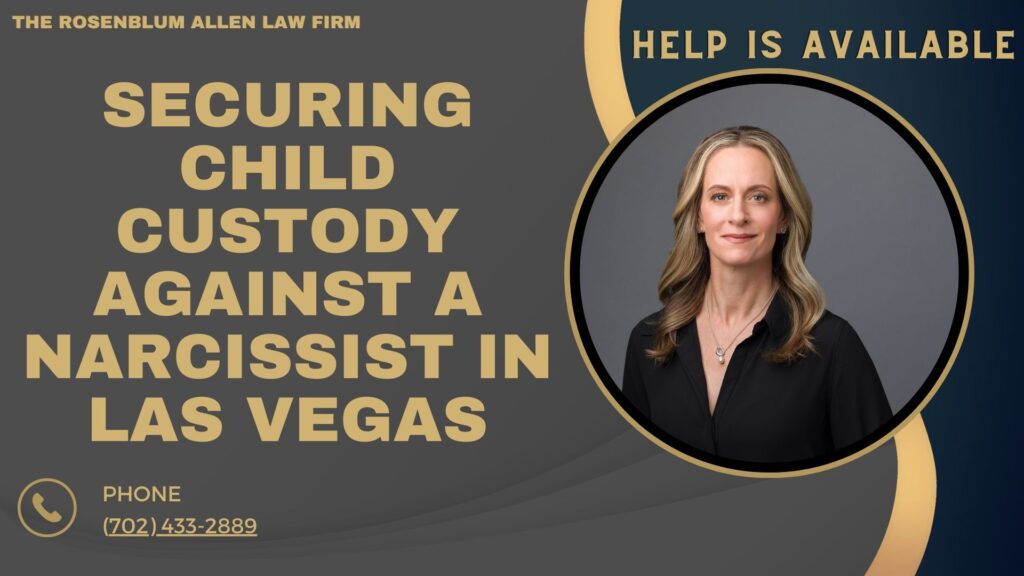
Understanding Narcissism in Custody Battles
Facing a narcissist in court can feel like an uphill battle. But don’t worry – knowledge is power. Let’s dive into what you’re up against.Recognizing Narcissistic Traits
Narcissists aren’t just tricky people. They have specific behaviors that can make custody battles particularly challenging. Here’s what to look out for:- Grandiosity: They believe they’re superior parents and can do no wrong.
- Lack of empathy: Your ex may struggle to understand or care about your children’s feelings.
- Manipulation: They’re masters at twisting situations to their advantage.
- Gaslighting: You might find yourself doubting your memories or perceptions.
The Narcissist’s Approach to Custody
When it comes to custody battles, narcissists play by their own rules. Here’s what you might encounter: Manipulation tactics in court:- Playing the victim
- Portraying you as an unfit parent
- Making false accusations
- Using charm to win over judges or mediators
- Denying past events or agreements
- Blaming you for all the problems
- Constantly changing their story

Legal Strategies for Custody Cases
Now that you know what you’re up against, it’s time to build your case. Remember, the court’s primary concern is the best interest of your children.Documenting Evidence
Your word against theirs isn’t enough. You need solid evidence to back up your claims. Here’s how to build your case: Keep detailed records of interactions:-
- Save text messages, emails, and voicemails
- Use a co-parenting app to track communication
- Document incidents of manipulation or abuse
-
- Ask family members, friends, or neighbors to provide statements
- Consider professional witnesses like teachers or therapists
- Remember, quality matters more than quantity
Building a Strong Legal Case
Choosing the right attorney can make or break your case. Look for someone with experience in high-conflict custody battles, preferably with a narcissistic personality. Preparing for court appearances:- Practice your testimony with your lawyer
- Stay calm and composed, even when provoked
- Stick to the facts and avoid emotional outbursts
Navigating the Court Process
Stepping into the courtroom can feel overwhelming, but don’t worry – we’ve got you covered. Let’s break down the process into manageable steps.
Filing for Custody
First things first: you need to understand what you’re asking for. There are different types of custody, and knowing the difference is crucial. Now, let’s talk paperwork. You’ll need to file several documents with the court:- Petition for Custody
- Summons
- Child Custody Affidavit
- Financial Disclosure Form
Presenting Your Case Effectively
This is your moment to shine. Remember, the judge doesn’t know your story, so it’s up to you to tell it clearly and convincingly. Communicating with the judge:- Speak clearly and respectfully
- Address the judge as “Your Honor.”
- Stay focused on the facts
- Show how your custody plan benefits your children
- Child psychologists
- Teachers
- Social workers
Protecting Your Children’s Well-being
This is all about your kids. Let’s focus on how to shield them from the negative impacts of a custody battle with a narcissist.Creating a Solid Parenting Plan
A good parenting plan is like a roadmap for your family’s future. It should address:- Visitation schedules
- Holiday arrangements
- Decision-making processes
- Communication methods
- Include clauses about respectful communication
- Specify consequences for violating the plan
- Consider supervised visitation if necessary
- Include provisions for your children’s education and healthcare
- Address any special needs or extracurricular activities
- Allow for flexibility as your children grow and their needs change
Implementing Boundaries
Boundaries are your best friend when co-parenting with a narcissist. They protect you and your children from manipulation and emotional abuse. Establishing clear communication rules:- Use a co-parenting app for all communications
- Stick to discussing only child-related matters
- Set specific times for phone calls or updates
- Document any violations of the custody agreement
- Report serious breaches to your lawyer or the court
- Stay firm but calm when asserting your boundaries

Post-Custody Considerations
Congratulations! You’ve made it through the custody battle. But as any parent knows, the journey doesn’t end here. Let’s talk about how to navigate life after the court’s decision.Co-parenting with a Narcissist
I know what you’re thinking: “Co-parent with a narcissist? Is that even possible?” It’s challenging, but you can make it work with the right strategies. Minimizing conflict:- Keep conversations brief and to the point
- Use the “grey rock” method (be bland and unemotional)
- Avoid rising to provocations
- Stick to the custody schedule
- Maintain similar rules in both households (as much as possible)
- Keep your children’s routines consistent
- Reassure your kids that both parents love them
Seeking Support and Resources
You’ve been through a lot. It’s OK to need help. It’s more than OK – it’s essential. Don’t be afraid to shop around for the right therapist. It’s like dating – sometimes you must try a few before finding the perfect match. Support groups and educational materials: You’re not alone in this journey. Consider:- Joining a support group for parents dealing with narcissistic exes
- Reading books on co-parenting with a difficult ex
- Following blogs or podcasts about narcissism and parenting
- Legal aid services for ongoing custody issues
- Child advocacy centers
- Domestic violence hotlines (if needed)
- Parenting classes specifically for high-conflict situations

Breaking It All Down for You
You’ve got this. It won’t be easy, but nothing worthwhile ever is. Your children will look back one day and appreciate the strength and love you showed during this difficult time.
So, stand tall, brave parent. You’re doing an amazing job, and your children are lucky to have you fighting for them. And no matter what happens, remember this: You are enough. You are strong. You are capable. And you will get through this.
Now, go out there and be the fantastic parent I know you are. Your kids are counting on you, and I believe in you. You’ve got this!

Frequently Asked Questions
How long does a custody battle with a narcissist typically last?
Custody battles with narcissists can be unpredictable and may last longer than typical cases. They can range from several months to years, depending on the complexity of the case and the narcissist’s willingness to prolong the process.
Can I request a psychological evaluation of my narcissistic ex during the custody process?
Yes, you can request a psychological evaluation. Your attorney can file a motion for a custody evaluation, which may include psychological assessments of both parents. However, the court will decide whether to grant this request.
What if my narcissistic ex refuses to follow the court-ordered custody agreement?
Document all violations of the custody agreement. You can file a contempt of court motion if the violations are severe or persistent. The court may enforce the agreement through various means, including fines or modifying the custody arrangement.
How can I protect my children from the narcissist’s manipulative behavior during visitations?
Consider requesting supervised visitations if there’s evidence of harmful behavior. Alternatively, use a parenting coordinator to mediate interactions. Teach your children age-appropriate coping strategies and maintain open communication with them.
Is it possible to get sole custody when dealing with a narcissistic ex?
While possible, getting sole custody is challenging and depends on various factors. You’ll need to prove that the narcissistic parent’s behavior significantly harms the child’s well-being. Courts generally prefer to maintain both parents’ involvement unless there’s clear evidence that it’s detrimental to the child.
How do I handle false accusations made by my narcissistic ex during the custody battle?
Stay calm and work closely with your attorney to disprove false allegations. Gather evidence that contradicts the accusations, such as witness statements or documentation. Avoid retaliating with your accusations, as this can escalate the conflict.
What if my children don’t want to visit their narcissistic parents?
This is a delicate situation. While you should encourage your children to maintain a relationship with both parents, you must also listen to their concerns. Document their reasons and consult with your attorney. Sometimes, the court may consider the children’s preferences, especially for older children.
How can I maintain my mental health during a prolonged custody battle with a narcissist?
Self-care is crucial. Consider therapy or counseling to process your emotions—practice stress-reduction techniques like meditation or exercise. Build a support network of friends and family. Remember, taking care of yourself enables you to better care for your children.
What if the narcissistic ex tries to turn our children against me?
This behavior is called parental alienation. Document any instances of your ex speaking negatively about you to the children. Maintain a positive relationship with your children without disparaging your ex. If severe, consult your attorney about bringing this to the court’s attention.
How do I explain the custody situation to my children without badmouthing their narcissistic parents?
Keep explanations simple and age-appropriate. Focus on reassuring your children that both parents love them. Avoid details about the legal process or your ex’s behavior. Emphasize that the changes are adult decisions not caused by the children.

Glossary
Custody: The legal right and responsibility to care for and make decisions for a child.
Narcissism: A personality disorder characterized by an excessive need for admiration, grandiose self-importance, and lack of empathy.
Gaslighting: A form of psychological manipulation where a person makes someone question their sanity, memories, or perception of reality.
Co-parenting: The shared responsibility of raising a child between separated or divorced parents.
Legal Custody: The right to make important decisions about a child’s upbringing, including education, healthcare, and religious instruction.
Physical Custody is the right to have a child live with a parent and the responsibility for their day-to-day care.
Sole Custody: When one parent has full legal and/or physical Custody of a child.
Joint Custody: When both parents share a child’s legal and/or physical Custody.
Parenting Plan: A detailed, written agreement that outlines how parents will raise their children after separation or divorce.
Child Custody Affidavit: A sworn statement filed with the court provides information about the child’s living situation and care.
Guardian ad Litem: A court-appointed representative who advocates for the child’s best interests in custody cases.
Mediation: A process where a neutral third party helps parents reach an agreement on custody and visitation issues.
Visitation: The time a non-custodial parent spends with their child as outlined in a custody agreement.
Supervised Visitation: When a third party oversees a parent’s time with their child due to safety concerns.
Parental Alienation: A process where one parent manipulates a child to fear, dislike, or reject the other parent without justification.
Best Interests of the Child: The legal standard courts use to decide Custody and visitation arrangements.
Contempt of Court: When a person disobeys a court order, such as violating a custody agreement.
Custody Evaluation: A process where a mental health professional assesses the family dynamics and recommends custody arrangements to the court.
Parenting Coordinator: A neutral third party appointed to help high-conflict parents resolve disputes and implement their parenting plan.
Grey Rock Method: A technique for dealing with manipulative or abusive people by being uninteresting and unengaged.
EMDR: Eye Movement Desensitization and Reprocessing, a psychotherapy treatment designed to alleviate the distress associated with traumatic memories.
Family Therapy: A type of psychological counseling that helps family members improve communication and resolve conflicts.
Play Therapy: A form of therapy primarily used with children, where play is used as a means of expression and communication.

Additional Resources for You
Here’s a reminder for your readers about the valuable resources created by Molly Rosenblum Allen, Esq., aimed at providing assistance in various aspects of family law:
Las Vegas Custody Attorney: experienced in child custody cases in Las Vegas, providing effective legal advice and support. More information can be found at Rosenblum Law’s Las Vegas Child Custody Attorney page.
Fathers Rights: Dedicated to advocating for fathers’ rights, ensuring fair and equal treatment in custody and family law matters. Learn more at Rosenblum Law’s Fathers Rights page.
Supervised Visitation: Focusing on cases where supervised visitation is required, ensuring the child’s safety and well-being. Details are available at Rosenblum Law’s Supervised Visitation page.
Changing Custody Agreement: Assistance with modifying existing custody agreements to better suit changing circumstances. Visit Rosenblum Law’s Changing Custody Agreement page for more information.
Grandparents Rights Nevada: Addressing the rights of grandparents in Nevada for visitation and custody. Find out more at Rosenblum Law’s Grandparents Rights Nevada page.
Long Distance Co-Parenting: Offering strategies and legal advice for co-parenting across long distances. Additional details can be found at Rosenblum Law’s Long Distance Co-Parenting page.
How a Mother Can Lose a Custody Battle: Providing insights into factors that might influence a mother’s custody rights. Visit Rosenblum Law’s page on this topic for more information.
Custody Battle Tips for Nevadans: Offering specific advice and tips for those involved in custody battles in Nevada. Learn more at Rosenblum Law’s Custody Battle Tips for Nevadans page.
What Not To Say In Child Custody Mediation: Guidance on what to avoid saying during child custody mediation. Details are at Rosenblum Law’s relevant page.
How Much is a Custody Lawyer: Providing information about the costs involved in hiring a custody lawyer. Visit Rosenblum Law’s page on this topic for more details.
Types of Custody: Explaining the different types of custody arrangements available. Find out more at Rosenblum Law’s Types of Custody page.
At What Age Can a Child Decide to Stop Visitation: Discussing the age at which a child can legally make decisions about visitation. More information is available at Rosenblum Law’s relevant page.

Offsite Resources You May Find Helpful
Narcissist Abuse Support: This website provides resources, support groups, and education to help survivors of narcissistic abuse. They have a specific section on divorce and child custody which could be helpful for those dealing with a narcissistic ex-partner.
Psychology Today’s Therapist Directory: This directory can help you find a local therapist who specializes in dealing with narcissistic personalities, which can be invaluable for those dealing with a narcissistic ex.
The National Domestic Violence Hotline: This resource offers help for those who may be dealing with domestic abuse, which can often be the case when dealing with a narcissistic partner. They offer resources and support to help you navigate through this difficult time.
Narcissistic Personality Disorder (NPD) on Mayo Clinic: This resource offers a detailed look at NPD, its symptoms, causes, and treatments. Understanding the disorder can be helpful when dealing with a narcissistic ex in a custody battle.
Family Law Self-Help Center – Nevada: This resource provides legal information, forms, and resources for individuals dealing with family law cases in Nevada, including child custody cases.
The National Child Traumatic Stress Network (NCTSN): Provides resources for parents and caregivers dealing with child traumatic stress, which might be helpful for parents dealing with a narcissistic ex-partner.
Our Family Wizard: This is a tool for divorced or separated families which helps manage communication, parenting time schedules, children’s activities, expenses, and more.
Online Parenting Programs: This website offers online parenting and co-parenting classes, some of which focus specifically on high-conflict situations.

What's Next?
You know how painful it can be to fight a lousy ex in court, especially when they are a narcissist.
Not only do you have the daily stress of facing them in court, but it can be hard to find a lawyer who understands how to handle their devious tactics best.
We know your pain and want to help you win your custody battle against a narcissistic ex.
At The Rosenblum Allen Law Firm, we specialize in exactly that.
We have years of experience assisting families to win these challenging cases and get the justice they deserve.
Let us bring our experience to resolve your issue quickly and effectively.
Don’t let a narcissist stand between you and the best future for your family.
Call us at (702) 433-2889, and we can help you get started toward a brighter future.
The Reason You Haven't Hired A Child Custody Attorney Yet
We’re ready to fight for the rights of your family if you hire us. We’re waiting to jump into action on the behalf of your family.


